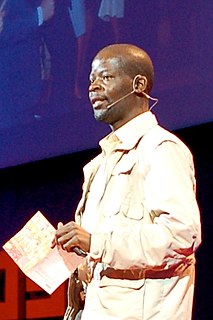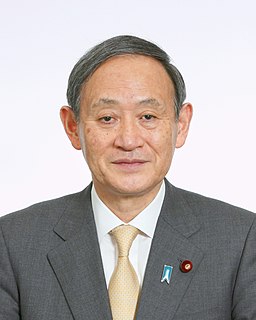A Quote by Dambisa Moyo
The most obvious criticism of aid is its links to rampant corruption. Aid flows destined to help the average African end up supporting bloated bureaucracies in the form of the poor-country governments and donor-funded non-governmental organizations.
Related Quotes
Moyo, a Zambia-born economist, asserts that aid is not only ineffective-it's harmful. Her argument packs a strong punch because she was born and raised in Africa. Moyo believes aid money promotes the corruption of governments and the dependence of citizens, and advocates that an investment approach will do more to help reduce poverty than aid ever could.
A nation as such does not give aid to another nation. More precisely, the common citizens of our country, through their taxes, give to the privileged elites of another country. As someone once said: foreign aid is when the poor people of a rich country give money to the rich people of a poor country.
Almsgiving tends to perpetuate poverty; aid does away with it once and for all. Almsgiving leaves a man just where he was before. Aid restores him to society as an individual worthy of all respect and not as a man with a grievance. Almsgiving is the generosity of the rich; social aid levels up social inequalities. Charity separates the rich from the poor; aid raises the needy and sets him on the same level with the rich.
Because it's unacceptable that the aid worker's chauffeur only speaks his own tribal language, an applicant is needed who also speaks English fluently - and, ideally, one who is also well mannered. So you end up with some African biochemist driving an aid worker around, distributing European food, and forcing local farmers out of their jobs. That's just crazy!
The notion that aid can alleviate systemic poverty, and has done so, is a myth. Millions in Africa are poorer today because of aid; misery and poverty have not ended but increased. Aid has been, and continues to be, an unmitigated political, economic, and humanitarian disaster for most parts of the developing world.

































